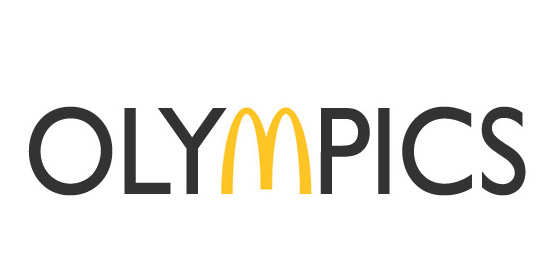
September 19, 2012, by ICCSR
Sponsorship, Sports and Ethics
The 2012 Olympics and Paralympics have raised issues of ethics and sponsorship of sports.
Some of us have quite set critical views, e.g.: ‘There is already far too much sport, and sponsorship only encourages media saturation of these banal activities at the expense of artistic, intellectual or economic flourishing’. For others ‘Sponsorship of sports only offers another opportunity for greedy companies to brainwash us into thinking that they care about society’.
But for those of us who regard sport as an opportunity for human flourishing and entertainment, and see sponsorship as an acceptable activity by legitimate businesses (e.g. on grounds of commercial freedom, relief to the taxpayer), the issues are more tricky.
One issue concerns the legitimacy of sponsorship by a company which is deemed to have unfinished responsibility, as in the criticism of the Dow Chemical company which bought Union Carbide – considered by many to be responsible for the Bhopal disaster. Critics believe that more compensation should be paid to victims and their families – some of whom held their own Paralympics to draw attention to this cause on the eve of the opening ceremony. The company might object that sufficient compensation had been paid (so what is a proper ethical basis for knowing what would be sufficient?) or that it is not responsible for another companies’ actions (so what ethical responsibilities apply in take-overs and mergers?).[i]
Other questions have arisen about the ongoing social and environmental impacts of companies sponsoring the games (e.g. the medal metal miners, Rio Tinto[ii]) and the issue of sponsorship featured in more general critiques of the games and their sustainability.[iii] Notwithstanding the Commission for a Sustainable London 2012’s praise for the achievements of the games, it notes that ‘the innovative sponsorship for “sustainability partners” has not been wholly successful and we would recommend that similar initiatives are much more explicit in their commitments, so the partner “earns” the right rather than just paying for it’.[iv]
Companies often enjoy privileged access to sporting occasions that they sponsor and they tend to distribute the tickets among senior managers, key clients and selected employees. Fair enough, but the sight of empty seats and the rumours of special access to the torch relay remind us that ethical responsibilities might go with sponsorship (e.g. ensuring that a scarce resource is well-used, self restraint in the use of rationed goods).
It is often considered as more appropriate for a company to sponsor in an area in which it operates rather than one that simply offers a ‘good marketing’ opportunity. So Sainsbury’s opted only to sponsor the Paralympics on the grounds that it played strongly to their core values and provided the opportunity to advance causes they are already engaged with (e.g. Active Kids). The branding opportunities that sponsorship brought could therefore be regarded as consistent with the business model. However, critics of Atos see it as hypocritical that the company should seek to burnish its image by sponsoring the Paralympics whilst, in their view, treating disabled people unfairly in its business i.e. delivery of the ‘fit to work’ programme.[v]
Notwithstanding its pleasure with the sustainability achievements of the games, the Commission for a Sustainable London 2012 did suggest that in future the International Olympic Committee should stress to sponsors the Olympic values of Respect, Excellence and Friendship, and should employ more transparent ethical standards in establishing future commercial partnerships.[vi]
Given that many companies often explain their sponsorships as about relationship building, one wonders what they will take away from the games? Overwhelmingly the athletes, support teams, volunteers and spectators exuded a spirit of competition tempered by public spiritedness and fairness. Given the talk of the need for a cultural change after the financial crisis and subsequent revelations of shabby – and conceivably worse – business behaviour, one wonders if the companies involved could learn from the spirit of the games? Beyond changing our attitudes to our country, to disabled people and to sport, can the London 2012 legacy include a review of the spirit of business ethics and of business responsibility to society?
By Professor Jeremy Moon, Director of the ICCSR and Maggie Royston, Business Development & Centre Manager of the ICCSR, Nottingham University Business School
Image by: Paul G. Reproduced under Creative Commons License CC BY-NC-ND 2.0 Source: http://www.flickr.com/photos/the-g-uk/7086837829/
[i] http://athletesagainstdowchemical.wordpress.com/olympic-sponsors/
[ii] http://www.aljazeera.com/programmes/peopleandpower/2012/06/201262075757520106.html
[v] See BBC Panorama and Channel 4 Dispatches programmes on Atos at:
http://www.bbc.co.uk/programmes/b01lldrc
http://www.channel4.com/programmes/dispatches/articles/britain-on-the-sick-reporter-feature
[vi] http://www.cslondon.org/wp-content/uploads/downloads/2012/06/CSL_Annual_Review_20111.pdf p.33.

I think the key point is for the International Olympic Committee to consider carefully what criteria to employ when entering into partnerships with corporate sponsors.
Great post indeed. Sponsorship is critical in sports because without it many games would struggle to exist and the world would be a boring place.
What is important is to spread sponsorship in such away that teams and sports codes get a fair share of this pie. It is troubling to see teams like Manchester United taking most sponsorship while other clubs go into receivership because of lack of financing.